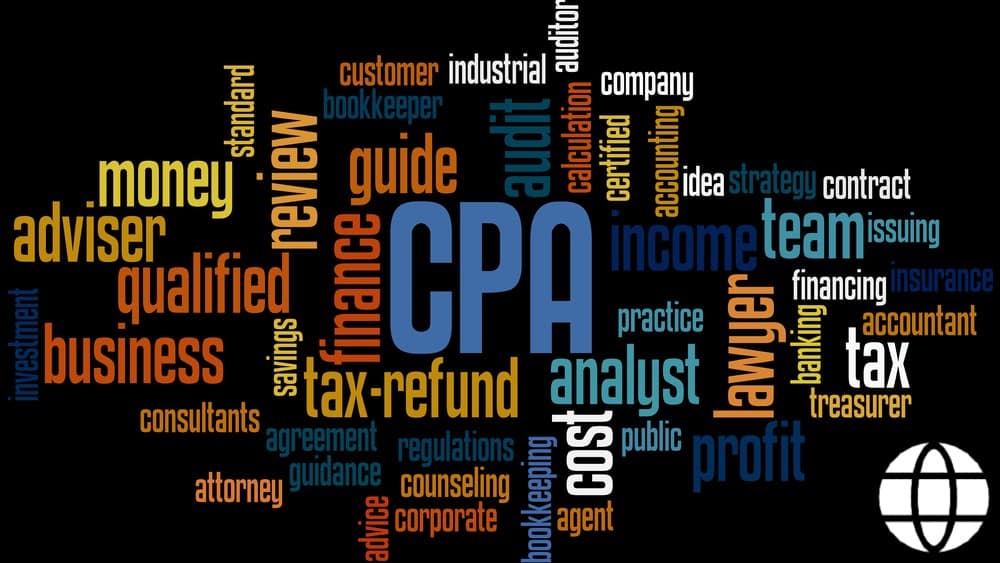Hello! Welcome to today’s blog on the CPA career path.
You’ll learn the career opportunities available to a certified public accountant (CPA) and how you can take advantage of them.
Specifically, we will discuss the following in this piece:
Let’s unveil the numerous opportunities embedded in earning a CPA!
Accounting Career Path: What You Can Do with a CPA License
There’s no gainsaying that the CPA certification confers a special status on you.
Apart from an in-depth understanding of essential topics, you’ll also learn more about leadership and ethics.
The CPA allows you to work in public and private accounting firms, academic institutions, governmental organizations, nonprofits, and corporations.
While CPAs primarily use financial knowledge to execute tasks, their roles differ from one organization to the other.
Below are the directions accounting careers for CPAs are likely to take:
Auditing
External and internal auditing processes are intense because they require consistent checking of financial statements and ledgers.
You may also need to travel to locations for fact-checking and information gathering to report events accurately.
Auditing is one of the best CPA jobs because recruiters don’t want to joke with this position; it’s often reserved for the best in most organizations.
Your CPA appellation shows that you’re experienced and can do a thorough job.
Tax
Some CPAs may also take the tax accountant career path.
Such professionals develop personal and corporate income tax statements for individuals and organizations.
They assist clients and employers with merger handling, tax returns, and acquisitions.
It’s also essential to note that one of the focus areas of the CPA exam by the American Institute of Certified Public Accountants (AICPA) is taxation.
Hence, if you have a flair for taxation, this is undoubtedly a good field for you to explore.
Organizations and individuals will pay you heavily for helping them resolve their tax issues and telling them the consequences of their expenditures.
Budgeting & Financial Analysis
Financial analysts are concerned with the development and management of comprehensive financial plans of companies.
They give management directions on employee benefits and draft their financial plans.
They work with every department in an organization to extract information to help them make informed decisions.
Financial analysts must be good at using information technology (IT) to hasten their work and make it more organized.
CPA Career Paths: CPA Job Opportunities
There are many things you can do with the CPA credential.
It’s safe to describe it as the master key used in unlocking all accounting career potentials.
Your journey of professional accounting isn’t yet started without the CPA!
After your CPA exam, you’ll be in search of high-paying jobs to get an adequate return on your investment.
When doing this, you shouldn’t focus on accounting jobs alone because there are numerous opportunities for you in non-accounting sectors.
Below are a few places where you can materialize your CPA career:
Public Accounting Organization
Most CPA holders dream of a career with the ‘Big 4’ accounting outfits.
The four globally-revered accounting organizations are PwC, Deloitte, Ernest & Young, and KPMG.
However, it’s advisable to start with other accounting firms littered across the country.
You can learn over the years before seeking a career with the Big 4.
To those searching for “how to get a CPA job with no experience,” you should understand that it may be challenging to start with high-profile firms.
Explore job opportunities from smaller public firms and show your financial prowess.
Your first job is to prove your worth, and when you do it well, it opens unimaginable doors for you.
Consulting Firms
Accounting positions and CPA careers in consulting organizations differ.
Though consulting firms use accountants as if they’re working in public firms, there are some variations.
Consulting firms give directions to clients and organizations by forecasting their financial needs, income, and expenses.
They also draft proposals and handle other financial issues.
They also assess an organization’s viability and if there’s any need for it to merge with another.
Working with consulting firms is your best bet if you can make informed projections for organizations.
Corporations
There are numerous CPA careers in leading corporations.
Corporations often devote an entire department to accounting teams.
It doesn’t matter whether it’s a publicly held or privately owned corporation.
CPAs work with Fortune 500 companies.
The CPA career paths will soon lead you to unrivaled greatness if you don’t limit yourself!
Government Institutions
You may work in government establishments to assist in keeping financial order.
You can hold several positions, whether local, state, or federal.
It’s the ideal position for an accountant who has just received their CPA license.
It allows you to stretch yourself, work hard, and grow in the profession.
If you stay put, you’ll soon be promoted to well-paid administrative positions.
Some government offices you’ll find CPAs include the Internal Revenue Service (IRS), the General Accounting Office, and the Department of Defense.
Academic Institutions
There are different roles designated for CPAs in academia.
They work in auditing units, financial aid, accounting, and comptroller’s offices.
They also serve as classroom instructors, giving students the foundational understanding of the CPA exam.
Certified public accountants working in academic institutions may also work privately to increase their earnings.
Nonprofit Organizations
Not-for-profit firms also require the services of accountants.
They need accountants to guide them on tax compliance and other financial regulations.
Some of these organizations are run through government grants, and they need to give accounts of the grants.
Accountants ensure that the financial records of the organizations are in order and transparent.
If you’re passionate about working for humanity and admire the idea that a not-for-profit is championing, you may choose to work with them.
You’ll earn big while living out your passion simultaneously.
There are many other opportunities for CPAs to explore.
For instance, they’re often part of organizations’ boards of directors.
Reasons to Pursue CPA Career Paths
Before you pursue a CPA career, you must consider your chances of thriving by asking the following questions:
Is a CPA a good career?
What can you do with a CPA?
You should ask these questions and more to be clear on the journey you are about to embark on.
Well, if you’re considering a career in the accounting field, rest assured that it’s an excellent path to take.
Our discussion in the preceding segment tells you that the CPA career path is filled with bliss and unending success stories.
Below are some of the reasons to take accounting career pathways:
Employment Opportunities
Accounting is an in-demand field, and you can easily find a job after graduation.
Passing the CPA exam will even give you an edge over competitors.
Every sector or industry needs the services of an accountant.
You’ll become irresistible with a CPA designation.
Many public accounting firms will employ only a CPA because they’ve entrenched excellence over time and want to retain the culture.
Promotions
The easiest way to gain promotion is by earning a CPA certification.
As you get promoted, you’ll be required to take on more prominent roles and provide leadership for your subordinates, and you can only do this effectively with a CPA designation.
In fact, you will not earn a promotion in many organizations without this designation.
Accountants move from junior roles to become CFOs, and eventually CEOs.
A CPA credential will distinguish you as you move up in the accounting career progression chart.
It Commands Prestige
Being a CPA-licensed accountant is prestigious.
Many high-paying accounting jobs are exclusive to certified public accountants.
Clients always want to work with certified professionals.
The CPA credential opens numerous unimaginable job opportunities for its holders.
Financial Gains
Earning potential is one of the essential factors in your accounting career path planning; you want to know how much you can make.
After earning an accounting degree from an accredited university, you’re ready to start earning.
Accounting is a highly profitable career, and you will even earn more money with a CPA.
The CPA allows you to hold privileged accounting positions, opening you to more financial opportunities.
If you have tax accounting skills, you’ll make more money during tax season by moonlighting.
The more you can stretch yourself on the accountant career ladder, the higher your earnings!
You may work with individuals, CPA firms, law enforcement (the FBI), government establishments, nonprofits, and multinationals.
Financial accounting is a flexible job that gives room for versatility.
You may specialize in financial analysis, auditing, financial management, forensic accounting, financial planning, consulting, budget analysis, financial reporting, and tax accounting.
Breakdown of Accounting Career Options
We want to categorize the types of accounting careers and responsibilities in this section:
Internal Auditing
Internal auditors ensure the effective operation of a company.
They ensure that employees comply with industry regulations.
They assess financial information systems, internal controls, information reporting procedures, financial systems, and management practices.
Internal auditors ensure effective operations of internal controls, search for waste, uncover frauds, and entrench industry business practices.
They ensure everyone works in line with the policies and regulations of the firm.
Auditors often work as an accounting team to ensure excellence in executing their tasks.
Government/Public Accounting
Government accountants are accounting professionals who work in the public sector, namely federal, state, and local government establishments.
They assess the financial statements of government establishments.
They also audit individuals, private firms, and non-profit organizations affected by government regulations.
Government accountants also ensure expenses and incomes comply with all government provisions.
They compare and audit financial records to ensure nobody perpetrates an act of lawlessness.
After earning your bachelor’s degree, you may apply to an entry-level position in a government institution to garner experience.
Management Accounting
Management accountants are part of an organization’s leadership, working tirelessly to ensure organizational growth.
You may also refer to them as industrial or cost accountants.
They’re in charge of performance evaluation, asset management, and budgeting.
They also carefully analyze financial information to make profitable business decisions for the organization.
The management accounting department also develops financial reports for creditors, tax authorities, shareholders, and regulatory agencies.
Management accountants give the needed guidance and teaching to staff accountants to execute their tasks excellently.
You should start early if you want to take the corporate accountant career path because it’s a highly competitive specialization.
Seek internship opportunities while still studying for your bachelor’s degree to harness your skill sets and garner prerequisite experience in the industry.
To work in this specialization, you may also need to acquire the chartered global management accountant (CGMA) designation.
Conclusion
The CPA designation is worth the sweat, resources, and investment.
If your dream is to be an accountant, don’t just earn a bachelor’s degree in accounting and stop it there.
Instead, strive to have this renowned certification.
For those searching “how to be an accountant without a CPA,” you don’t need a CPA to become an accountant.
However, if you want to be revered in the profession, you need a CPA after becoming an accountant.
When choosing a CPA career path, ensure you choose a specialization you naturally love.









